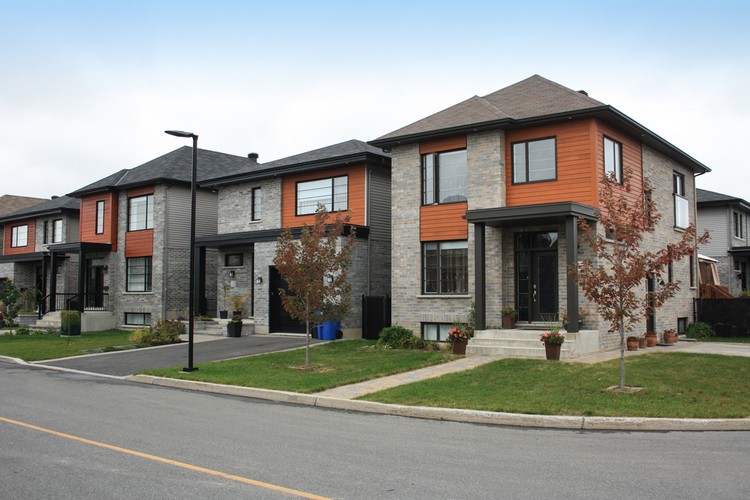What Every Homeowner Should Know About Property Value
Understanding what drives property value is essential for any homeowner, whether you’re thinking of selling, refinancing, or simply investing in your future. This article breaks down the key factors that influence your home’s worth, from location and market trends to renovations and upkeep. By gaining a clear picture of how property values are assessed, you can make smarter decisions to protect and grow your investment with confidence:

What Are the Primary Factors That Influence Home Value?
Several key factors work together to determine your home’s market value. The size and layout of your property play a fundamental role, with square footage, number of bedrooms and bathrooms, and overall functionality affecting pricing. The age and condition of your home also matter significantly, as newer properties or well-maintained older homes typically command higher values.
Structural elements like the foundation, roof, electrical systems, and plumbing are critical factors that appraisers and buyers examine closely. Additionally, architectural style and unique features can either add to or detract from value depending on current buyer preferences in your market. Energy efficiency features, such as updated windows, insulation, and HVAC systems, have become increasingly important factors in property valuation.
How Do Location and Neighborhood Affect Property Pricing?
Location remains one of the most powerful determinants of home value, often overshadowing other property characteristics. Proximity to quality schools, employment centers, shopping, and healthcare facilities can significantly boost property values. Neighborhoods with low crime rates, well-maintained infrastructure, and strong community engagement typically see higher property values and better appreciation over time.
Transportation access, including proximity to major highways, public transit, and airports, influences desirability and pricing. Environmental factors such as scenic views, waterfront access, or proximity to parks and recreational areas can add substantial value. Conversely, being near industrial areas, busy roads, or environmental hazards can negatively impact property values.
What Role Do Renovations and Maintenance Play in Home Value?
Strategic renovations and consistent maintenance can significantly impact your home’s value, though not all improvements offer equal returns. Kitchen and bathroom updates typically provide strong returns on investment, as these spaces are priorities for most buyers. Curb appeal improvements, including landscaping, exterior painting, and front entrance enhancements, create positive first impressions that translate to higher valuations.
Regular maintenance prevents small issues from becoming major problems that could hurt your home’s value. Addressing roof repairs, updating outdated electrical systems, and maintaining HVAC equipment demonstrates proper care to potential buyers and appraisers. However, over-improvement for your neighborhood can lead to diminishing returns, making it important to consider local market standards when planning renovations.
How Do Market Trends Impact Real Estate Values?
Real estate markets are cyclical, influenced by economic conditions, interest rates, and supply and demand dynamics. When housing inventory is low and buyer demand is high, property values typically increase. Conversely, oversupply or reduced buyer demand can slow appreciation or even lead to declining values.
Interest rate changes directly affect buyer purchasing power, influencing overall market activity and pricing. Economic factors such as employment rates, population growth, and local industry health also impact property values. Seasonal patterns affect market activity, with spring and summer typically seeing increased sales activity, though this varies by region.
How Can Homeowners Protect and Grow Their Property Investment?
Protecting and growing your property investment requires both proactive maintenance and strategic planning. Regular home inspections can identify potential issues before they become costly problems. Staying current with neighborhood trends and property values helps you make informed decisions about improvements and timing for potential sales.
Building equity through additional principal payments can strengthen your financial position, while maintaining adequate insurance coverage protects against unexpected losses. Consider energy-efficient upgrades that appeal to modern buyers while potentially reducing utility costs. Keeping detailed records of improvements and maintenance helps demonstrate your home’s value to future appraisers or buyers.
Understanding Professional Home Valuation Services
Professional home valuation services provide accurate assessments of your property’s worth, though costs and approaches vary among providers. These services are essential for refinancing, selling, or estate planning purposes.
| Service Type | Provider Examples | Cost Estimation | Key Features |
|---|---|---|---|
| Full Appraisal | Licensed Appraisers | $300-$600 | Detailed interior/exterior inspection, comparable sales analysis |
| Automated Valuation | Zillow, Redfin, Realtor.com | Free-$50 | Algorithm-based estimates, recent sales data |
| Broker Price Opinion | Real Estate Agents | $75-$150 | Market knowledge, comparative analysis |
| Professional Inspection | Home Inspectors | $300-$500 | Detailed condition assessment, repair recommendations |
Prices, rates, or cost estimates mentioned in this article are based on the latest available information but may change over time. Independent research is advised before making financial decisions.
Understanding property value involves recognizing the complex interplay between location, property characteristics, market conditions, and timing. By staying informed about these factors and maintaining your property strategically, you can make decisions that protect and enhance your investment. Whether you’re planning to sell, refinance, or simply want to understand your financial position, knowledge of property valuation principles serves as a valuable foundation for homeownership success.




